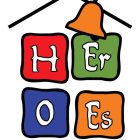Use this resource to memorize expressions vocabulary and review terms learned in previous expressions & equations vocabulary units for 6th Grade Prealgebra.
This resource includes the following:
- Word List with Definitions
- 5 new Flash Cards to add to the 20 flash cards from prior expressions & equations vocabulary units
- 5-page student study guide
- 3 quizzes
Flash cards are formatted two ways:
- Easy to print double-sides on standard paper; 8 cards per page.
- Printable directly onto 4 X 6 index cards
This resource is one part of a 20-unit 6th Grade Prealgebra vocabulary series covering 145 terms. In this unit, five new statistics terms are introduced and ten terms from previous units are reviewed.
The complete 6th Grade Prealgebra Vocabulary Series includes:
Expressions & Equations
- Introduction to Expressions & Equations
- Exponent Rules
- Expressions
- Terms & Factors
- Properties of Arithmetic
- The Distributive Property
- Statements
- Properties of Equality
- Equations
Number Systems
- Fractions & Decimals
- Factors & Multiples
- Integers
- Cartesian Coordinate System
Geometry
- 2D Shapes
- 3D Solids
- Surface Area & Volume
Ratios & Proportions
- Ratios & Proportions
Statistics & Probability
- Introduction to Statistics
- Distributions
- Data Displays
Program Design
The complete 20-unit series covers 145 vocabulary terms. The units are organized by strands to provide some flexibility in the order they are presented.
The Ratios & Proportions strand contains 10 words in one stand-alone unit.
For all other strands, the first unit of the strand contains 15 terms. Each subsequent unit in the strand introduces 5 news terms and reviews 10 terms from previous units. This built-in review means that students study most terms for at least three weeks which aides with long-term retention.
While students must study 15 terms each week, quizzes only contain 10 of them: the five new terms that are introduced that week and five of the ten review terms. Different review terms are included in each of the three versions of the quiz.
How I use this in my classroom
In my classroom, I require students to earn at least an 80% on a vocabulary quiz before they can progress to the next unit. If a student does not pass a specific vocabulary quiz, they take a different version of the quiz the following week.
Once a student passes all 20 vocabulary quizzes, they earn the natural reward of being free from vocabulary homework and quizzes for the rest of the year. Usually after one student earns this reward, other students are motivated to also pass their remaining vocabulary quizzes.
If a student is significantly behind on their vocabulary, I may require that they study two units per week until they catch up. If you choose to do this in your classroom, it is important that you assign the student two units from different strands. Studying for two consecutive units in the same strand would defeat the built-in review aspect of the program.
How I integrate vocabulary in my classroom
Memorizing definitions is just the first step in understanding many mathematical concepts. I use the same terms and definitions in all my course material and require students to use proper math vocabulary whenever they speak or write. I routinely ask vocabulary questions when I speak to my students.
I teach my students to apply their understanding of arithmetic to variables and expression. I use vocabulary to facilitate this. For example, I may present them with a 4th Grade 2-digit X 1-digit multiplication problem and ask them to explain how they would find the product using the Distributive Property of Multiplication over Addition. I then ask them to give the same explanation using proper vocabulary terms instead of numbers. It usually becomes a game of Taboo with students taking turns trying to avoid naming a number. Sometimes, I let them work out the explanation in pairs or small groups and have them read out their final statements. They can then apply their rule to algebraic expressions.













Reviews
There are no reviews yet.